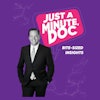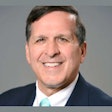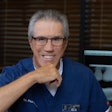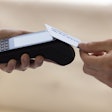
You've worked hard all year, and you deserve time off during the holiday season. Most dentists find themselves working longer hours and more days in the lead-up to holidays to accommodate their patients' desire to get a year's worth of work completed before their insurance benefits lapse. You take the onslaught of patients now for fear that there are some big valleys up ahead in this roller coaster ride of patient flow.
The bottom line is, your family is home, kids are off, traditions are set, and you shouldn't miss any of it. Additionally, there is significant added value to taking a break, as it replenishes your energy, resets your biological system, and gives you balance to long working days. In other words, it's exactly what the mind, brain, body, and spirit needs for effective stress management.
Here are the steps to make sure you can stress less and take time off.
Prepare for your departure
 Jen Butler, MEd.
Jen Butler, MEd.This is relatively easy, as most dentists do this in some fashion at the end of each day or as they are leaving for the weekend. Preparing for your departure on vacation is not any different -- it's just a longer time frame.
Here are just a few tips:
- Make a team schedule of who will be staffing the phones.
- Review emergency protocols with the team in advance (patient needs, office issues, etc).
- Set performance expectations during vacation hours.
- Update all charts, notes, and files.
- Call labs and vendors to ensure all cases will be complete and delivered before you return.
- Complete all large cases, and don't start time-sensitive cases right before leaving.
- Clear your desk of all papers and finish task-list items.
- Partner with a local colleague for on-call needs.
Be updated, not contacted
The trouble with advanced technology is that you really can never get away. Your team can text you while you lay on the beach, send emails while you are flying, and share patient info as you connect remotely into your server. The purpose of taking time off is to decompress and reset, which is difficult to do when you're consistently bombarded with work contacts. Set yourself up to only be updated and not contacted while you're away.
Being updated is different than being contacted, because it puts you in control of when you receive the information. Texts, emails, and Facebook messages are all pushed to your phone automatically so you have no control of delivery. You don't want to be having a great time and all of a sudden get a message about team drama.
“Being updated is different than being contacted, because it puts you in control of when you receive the information.”
Here are some processes to put into place that will put you in control:
Make it very clear that at no time are you to be contacted unless there is an emergency. (Be sure to define emergency for your team: office fire or destruction, theft, legal issues, etc.)
Create an opportunity for the team to update you via Google Drive and Google Calendar. Drive is where each team member can have an open document to update around their own department and you have free access to comment. Calendar is where the team can add when deliveries arrived, cases completed, patients called each day, resolution, and more. You should also consider using Dropbox for any pictures, videos, or saved documents that are time-sensitive.
Set boundaries for yourself and commit to only viewing updates at certain times each day or at exact points of your vacation.
Prepare for your return
To keep worry and fear of being overwhelmed at bay, it is important you prepare to return to work before you leave. By having specific plans proactively laid out, you reduce the number of surprises and stressful moments on your return.
- Review all patient charts of the entire week you return.
- Call patients with larger or more complex cases and see what questions they might have before their appointment.
- Make a to-do list of any tasks you want your team to complete upon your return (cleaning, admin organization, marketing efforts, patient calls).
- Intentionally set up your schedule on return that allows you to ease back into work (schedule light the first hour or two, schedule patients that you know and like, no NPs first thing, and avoid high production until the afternoon).
- Have the team update you via Google Calendar or Dropbox with any patients who were added to your schedule within the first 48 hours of your return. This allows you to review and prepare.
- Set a longer morning huddle your first morning back for further updates, review of task lists, celebrate goals, and share stories.
Taking time off doesn't have to be filled with fret and worry. Follow these ideas, while adding your own, and you will be able to take the time off you deserve and enjoy it.
Jen Butler, MEd, certified professional coach (CPC), board-certified coach (BCC), has been working in the area of stress management and resiliency coaching for more than 20 years. She is available as a coach/consultant, speaker, and trainer. To learn more about her services, to sign up for her monthly "stressLESS" newsletter, or to take the Dental Stress Self-Assessment, please visit her website. Contact her at 623-776-6715 or [email protected] for more information.
The comments and observations expressed herein do not necessarily reflect the opinions of DrBicuspid.com, nor should they be construed as an endorsement or admonishment of any particular idea, vendor, or organization.


















